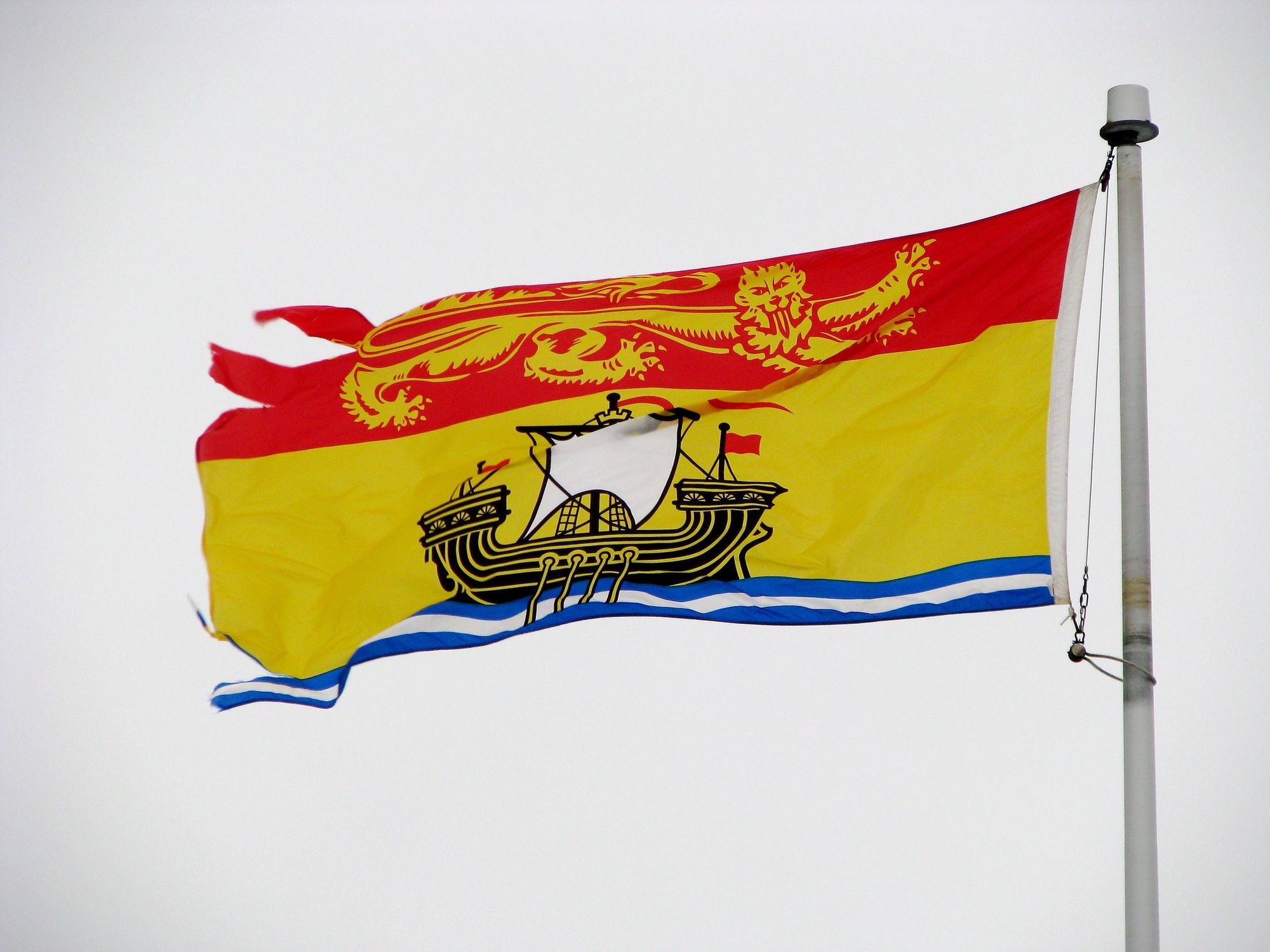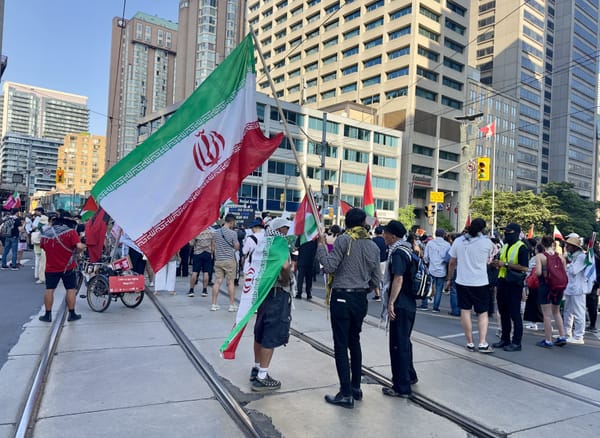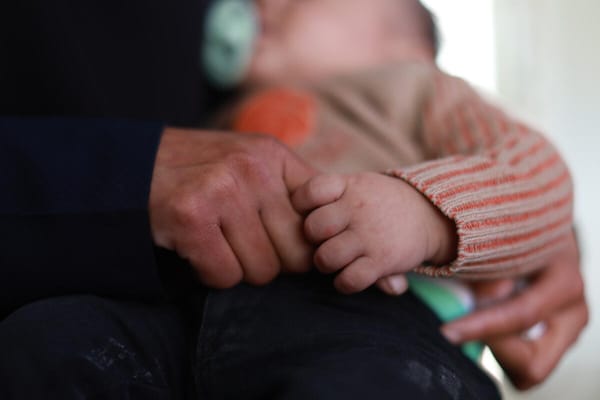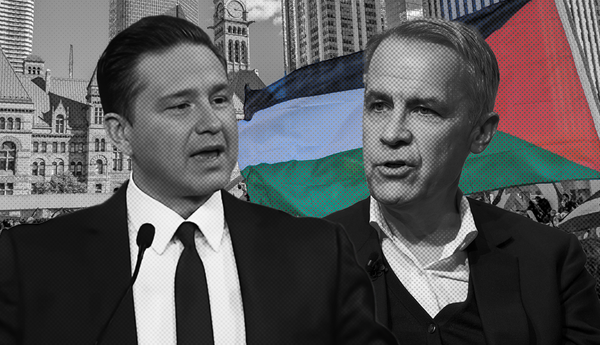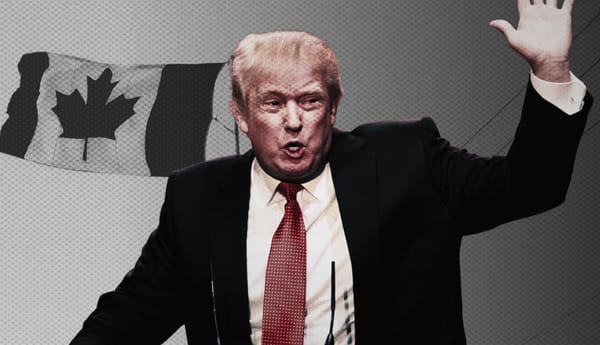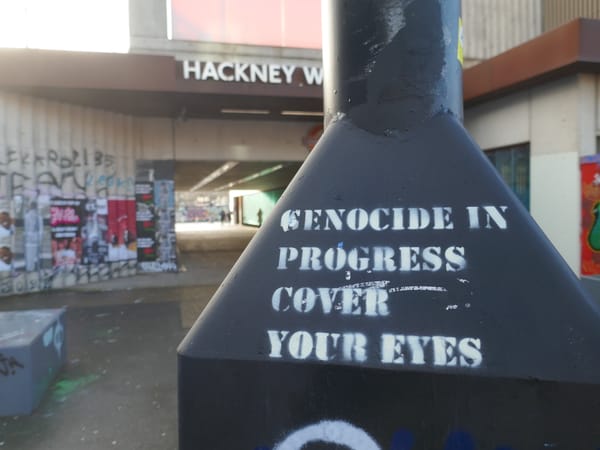On Monday, New Brunswick will hold a general election, becoming the first province in Canada to do so during the pandemic. This alone makes the election notable, but there’s more at stake that deserves attention throughout the country.
Key battles for socialists in Canada are being fought in the province, many of them on the ballot in some form this election, including reproductive and environmental justice, trans healthcare access, public transit and post-pandemic economic recovery.
Here’s a broad overview of what’s happening in New Brunswick, the political parties vying for power and why everyone on the left should pay close attention.
The Right
New Brunswick has been led by a minority Progressive Conservative government (22 seats) since September 2018. They’re propped up by the right-populist People’s Alliance (three seats) on key votes. The Liberals hold 21 seats, and the Greens the remaining three.
This election was triggered early by Premier Blaine Higgs, who hopes to use the province’s success in fighting COVID-19 — through an early provincial shutdown and strict quarantine measures — to propel him to a majority government. Early containment also means New Brunswick’s economy opened up early, something Higgs hopes will help him this election.
Despite being a minority government, however, the Conservatives’ slash-and-burn approach to public spending wasn’t curtailed throughout their time in power.
Higgs pursued deadly cuts, including to healthcare, and pushed down wages in the public sector. He famously told nursing home workers seeking wage increases last year to move to Alberta.
Higgs refused federal relief monies for transit systems and also turned down capital infrastructure partnerships. With transit ridership decreasing due to the pandemic, and the province’s public infrastructure in desperate need of upkeep, this amounts to a cut to essential services.
The Conservatives have also refused to ban glyphosate spraying on crown lands, which has had a disastrous impact on the province’s deer population as well as environmentally and economically significant forests. One company, J.D. Irving Limited, is responsible for much of this spraying. Higgs spent 33 years working for Irving Oil, another Irving company, and continues giving them massive tax breaks. His chief of staff is also an Irving lobbyist.
The Higgs government refused to fund Clinic 554, an abortion provider in Fredericton, effectively eliminating reproductive health access in the western part of the province and forcing the only clinic with trans-inclusive health services to close. Higgs also refused to pursue an inquiry into systemic racism in the province after two Indigenous people were killed by police during house calls.
The People’s Alliance, meanwhile, is a party formed in the wake of the 2010 protests against the sale of the province’s publicly-owned power utility to Hydro Quebec. They’ve mixed anti-Francophone messaging around bilingualism in the province with populist appeals for a simplified tax system, the end of unpopular corporate subsidies and streamlined vehicle regulations.
The People’s Alliance has been most popular in rural and semi-rural anglophone ridings that have seen access to public services plummet due to funding cuts, privatization and service centralization. The party blames the perceived expenses of French-language services, rather than austerity or corporate wealth-hoarding, for these issues.
The Centre
The Liberals are opposed to the Conservatives’ cuts to education funding and Clinic 554, as well as their refusal of federal investment. However, they’re effectively in accord with the Conservatives on other issues. For example, successive Liberal governments pursued soft privatization in the form of public-private partnerships, spending $200 million on private contractors. Liberal leader Kevin Vickers has also said he supports the development of small modular nuclear reactors, a favourite corporate make-work project of conservative premiers, which pose serious environmental concerns.
Thus, while a Liberal victory over the Conservatives would mean more collaboration with the Federal government on infrastructure, and funding for Clinic 554, macroeconomic issues of rampant privatization and hitching the province’s economy to environmentally destructive private resource projects would persist.
The Left
The left, populist counterpart to the People’s Alliance is the Green Party. It positions itself to the left of the federal party on many issues. It has had success in rural ridings and in the student-dominated Fredericton South, where its leader, David Coon, currently represents and is poised to win again.
The NDP is largely missing in action. After a long period under leader Dominic Cardy, who is now the education minister for the Conservatives, the NDP struggled in 2018 to retain its already marginal support, receiving just 5 per cent of the vote and no seats.
A younger cohort of candidates centred in Saint John hope to revive the provincial party. For example, Caitlin Grogan, the NDP candidate squaring up against Higgs in his riding, received national attention for calling out the Saint John Police’s egregious record of sexual assault case dismissals. However, while Grogan and others have brought attention to the party’s platform, this is unlikely to translate into success at the polls.
Both parties have proposed a laundry list of important social-democratic reforms including: a $15 per hour minimum wage; taxing the wealthiest families; reviving supply management in crucial agricultural staples; expanding sectoral collective bargaining for unions. However, despite being ostensible alternatives to the Liberals and Conservatives, the Greens and NDP don’t pose any serious threat to capital, which in New Brunswick is mostly held by family dynasties.
Moreover, absent links to a strong, organized labour movement, which neither party can currently boast of, even these reforms are unlikely to be won in the face of opposition from other parties, as well as economic retaliation and propaganda from capital.
Post-Pandemic Precedents
New Brunswick has weathered the pandemic well relative to other provinces, with only two deaths and few active cases at the time of writing. However, if the Conservatives form a majority, none of the benefits of successful pandemic resistance and recovery will be shared with workers.
Already, signs are indicating that workers are being left behind, with no increase to the province’s pitiful minimum wage of $11.70 per hour. Continued conservative austerity will disproportionately impact women, LGBTQ and racialized workers. A Conservative victory also means health services of all types will be cut back and shuttered, crucial infrastructure will crumble and the big families of capital will remain comfortable while others languish in poverty.
Moreover, if Higgs can weather a pandemic election while advancing a regressive social and economic agenda, other Conservative premiers will take note. If they have their way, Canada’s post-COVID-19 recovery will be regionally fractured and accomplished on the backs of the working class, while they ram through austerity and bail out the fossil fuel industry.
While all electoral options in New Brunswick have limitations for socialists, a Conservative defeat and an increase in seats for the Greens and NDP means that legislators with a commitment to progressive reforms might hold the balance of power. Labour and social movements could win key victories, especially in a minority government situation, while also learning the limitations of electoralism and tailing centre-left parties.
A defeat for Higgs also sends the message that politicians throughout the country must listen to Canadians and build a COVID-19 response that is equitable, ecological and focused on increasing social support.

